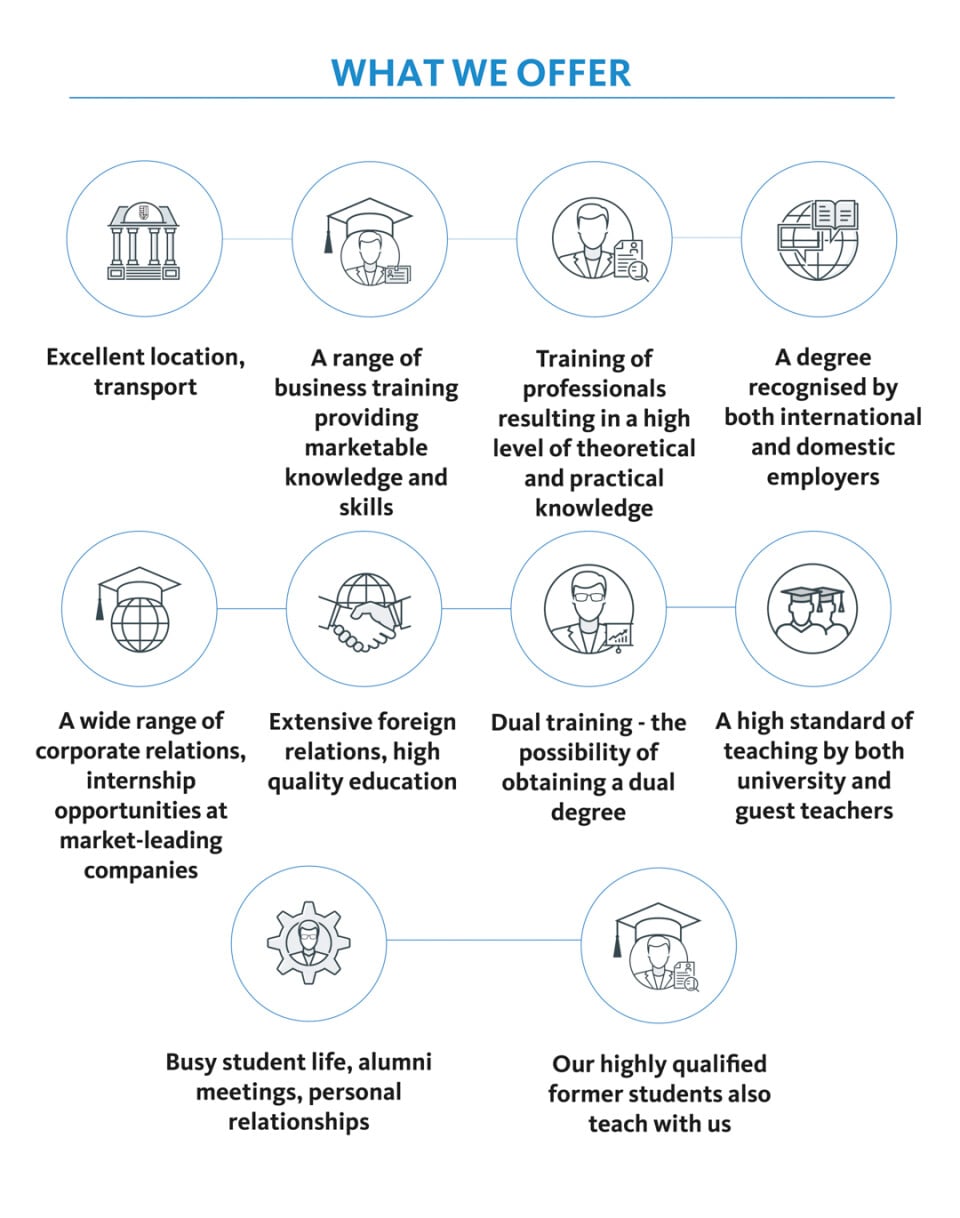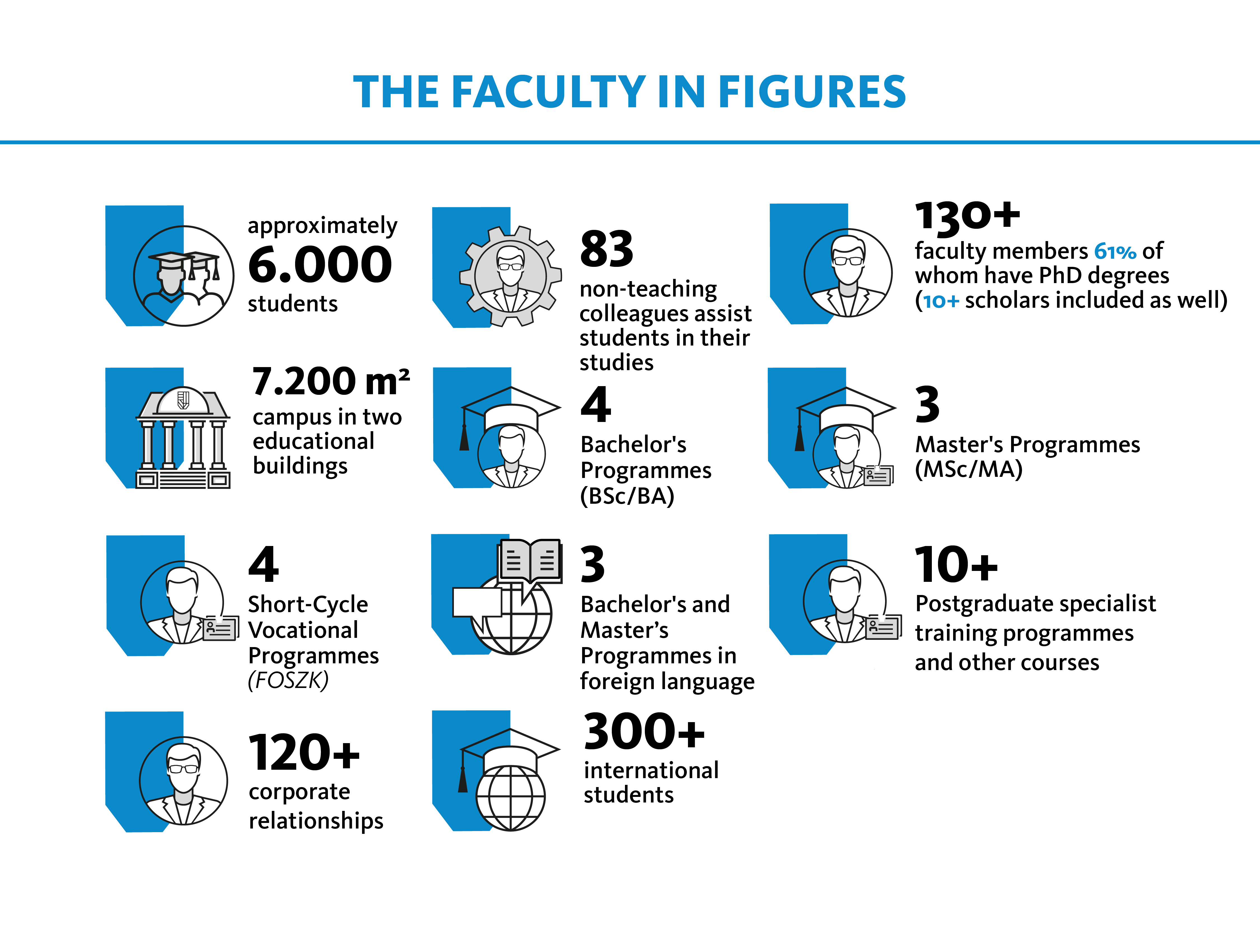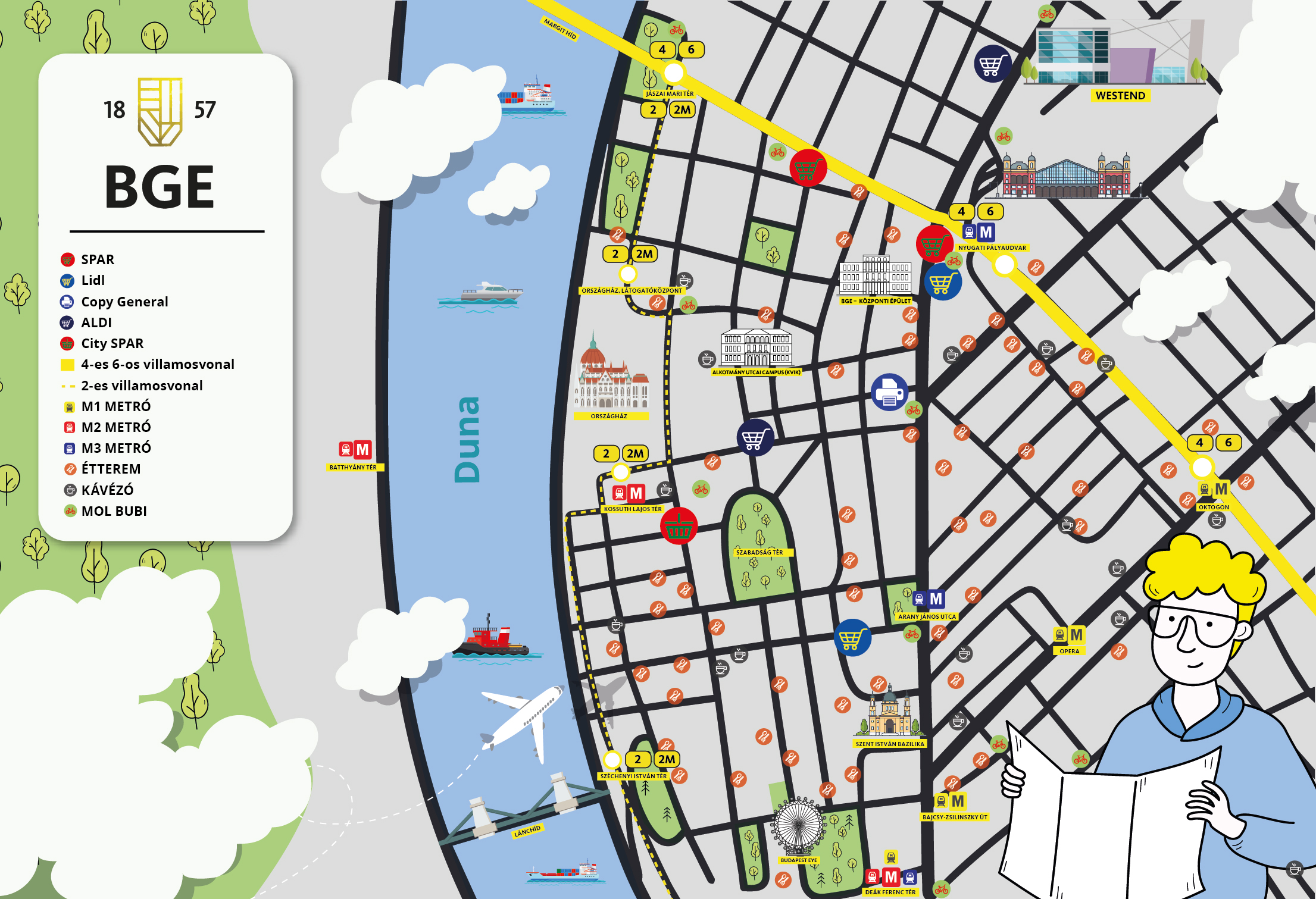Candidates who apply to our Faculty have the option to choose from the following programmes: two courses in the short-cycle vocational programme - FOSZK (Tourism and Catering, Commerce and Marketing), two undergraduate majors in economics (Commerce and Marketing, Tourism and Catering), one bachelor of arts course in Community Coordination, and one in the field of pedagogy (Vocational Instruction in Business) and three majors in the Master’s Programme (Supply Chain Management, Tourism Management, Teacher of Economics). Every year, about one thousand five hundred new first-year students enter the gates of the alma mater, thus, our average number of students is around six thousand, so we are among the largest institutions in Hungarian higher education in the field of economics.
Higher educational programmes were first launched 50 years ago at the legal predecessor of the Faculty of Commerce, Hospitality and Tourism (FCHT) of Budapest University of Economics and Business. As the professional and intellectual heir of the College of Commerce and Hospitality, the Faculty is now the best-known and largest higher educational institution in these fields and boasts the largest number of students. As part of BUEB, which became a University of Applied Sciences in 2016, FCHT trains highly qualified professionals who think in a complex and responsible way using a multidisciplinary approach, by creating strong theoretical basis and providing a wide range of practical knowledge. The Faculty offers a training of three-stages: students can take part in the four-semester-long Short-Cycle Vocational Programme (FOSZK), the six, seven or eight-semester-long Bachelor's Programmes, and the four-semester-long Master's Programmes.


